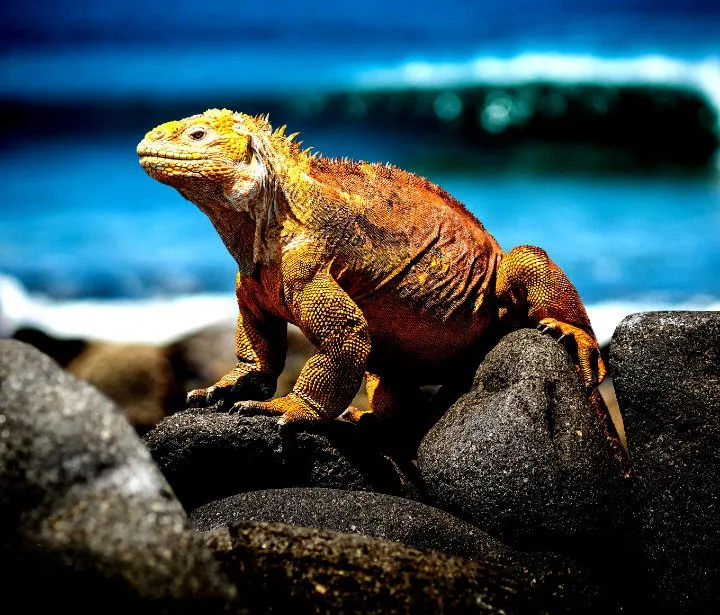
It could be said that the pinnacle an organism can evolve to, is to get to a point whereby it invents technology that makes evolution obsolete.
The human race has set itself aside from all the other animals on the planet, by putting its faith largely in technology to further its existence on earth.
Take smallpox for instance, a disease that medical science helped eradicate. Perhaps in a few hundred thousand years we might have developed a natural immunity to it. However in just a few years we overtook evolution and left it in the dust.
So is this it? Is this the death knell sounding for evolution? Are we really just going to throw away 4.5 billion years of R&D?
What Has Evolution Ever Done For Us?
John Cleese in the timeless classic; 'Life Of Brian', famously asked; "What have the Romans ever done for us?"
Of course the comedy came as an endless list of lifestyle improvements was reeled off as Cleese's character get's more and more flustered.
Clearly we could do a similar sketch when we ask what has evolution ever done for us? Clearly everything; we quite literally wouldn't be where we are today without it.
It is not unpopular to believe that most of our evolutionary advantages were garnered millions of years ago and not much has changed since then.
This is largely true, however for examples of 'modern' evolution, look to the Tibetans and other indigenous peoples of the Himalayas.
The locals who live at such high altitudes tend not to get altitude sickness. An affliction that strikes when you ascend a tall mountain, and can cause nausea and at its worst, death.
Altitude sickness, is caused by lack of oxygen. Brought on by the thinning atmosphere and the body's inability to compensate its biology.
People born to families who have lived at high altitude for generations, have been found to have blood vessels in their nostrils, that are 15% larger than people at sea-level.
This mutation is down to the EPAS1 gene, inherited from a not too distant hominid species around 45,000 years ago.
The addition of the EPAS1 gene, makes living at altitude possible, it is a stark reminder to the harsh realities of natural selection; adapt or die.
However as our lives and environments become more stable and change less, so too does our evolution slow down.
Darwin showed us that creatures who have inhabited environments that have remained unchanged for millions of years, do not evolve much.
Whereas creatures who live in environments that are constantly in flux, either adapt to match their circumstances, or die out and become extinct.
The Techno Evolution

Technology has made it such that, there is no one thing on earth, that can wipe out the human race. Of course an asteroid might hit the earth, and if it was big enough it would get us all.
However there is every chance by the time one is coming towards us, we would have worked out a way of avoiding its deadly embrace.
We can definitely give three cheers to technology for putting us where we are today. I'm not just talking about modern inventions either, even decisions to stop living in trees and caves, and build shelter was a major one.
Living in trees and caves leaves you susceptible to danger if the trees for some reason die out, and predators decide to inhabit the same caves as you.
So along with having to cope with the slow, grinding progress of evolution. We are slowing our own evolution even further.
So is this it; is this the end for biological evolution?
Exploring The Void

Even though we often speak of evolution as if it has a conscious goal, it evidently does not. Their is no intelligence or driving force behind evolution.
If there were, then things like sickle cell, would not exist. A blood cell that is shaped like a farmer's sickle, cannot take on the malaria virus, however that also renders it inefficient, and dangerous to the carrier.
If you boil life down to its simplest terms, then our bodies, brains, and internal organs can be thought of as hardware and our DNA is the software.
DNA is wonderful in that it has lots of fixed rules within it, like what colour your eyes or hair were going to be at birth. However unlike computer software, how DNA manifests itself is down to environment.
So for instance a child who lifts too heavy weights when she is growing up, will not live up to the full height potential within her DNA.
Also we have to consider the huge elephant in the room; hereditary disease. Because DNA and evolution have no intelligence driving them, things that are potentially harmful for the organism, get passed on.
However it is not always so black and white, some times your genes tell you you will get a certain disease by a certain age. Sometimes they simply indicate the percentage chance of you succumbing to a particular ailment.
This is the area where science can help us. Genomics researcher, Jun Wang, founder of iCarbonX, is working on digitising human DNA and then modelling it within a computer.
In short, this means that you will be able to have a digital you, living out a multitude of lives and telling you in advance what you should be doing and/or avoiding, in order to prolong your life.
So at first our digital evolution will be a passive one, more a guide than a driver. However that will only be at the beginning.
Our digital evolution has started, Pandora's box is open, and nothing is going to shut it again. Will we cease to evolve 'naturally'? Maybe, but if we do, it is only because we have completely mastered our environment.
This way we can edit out all the bad, and keep all the good that evolution has done for us.
WHAT DO YOU THINK; WILL TECHNOLOGY HELP US EVOLVE FAR BEYOND WHAT WE ARE TODAY? OR ARE WE GOING DOWN A DARK ROAD MESSING WITH NATURE? AS EVER, LET ME KNOW BELOW!